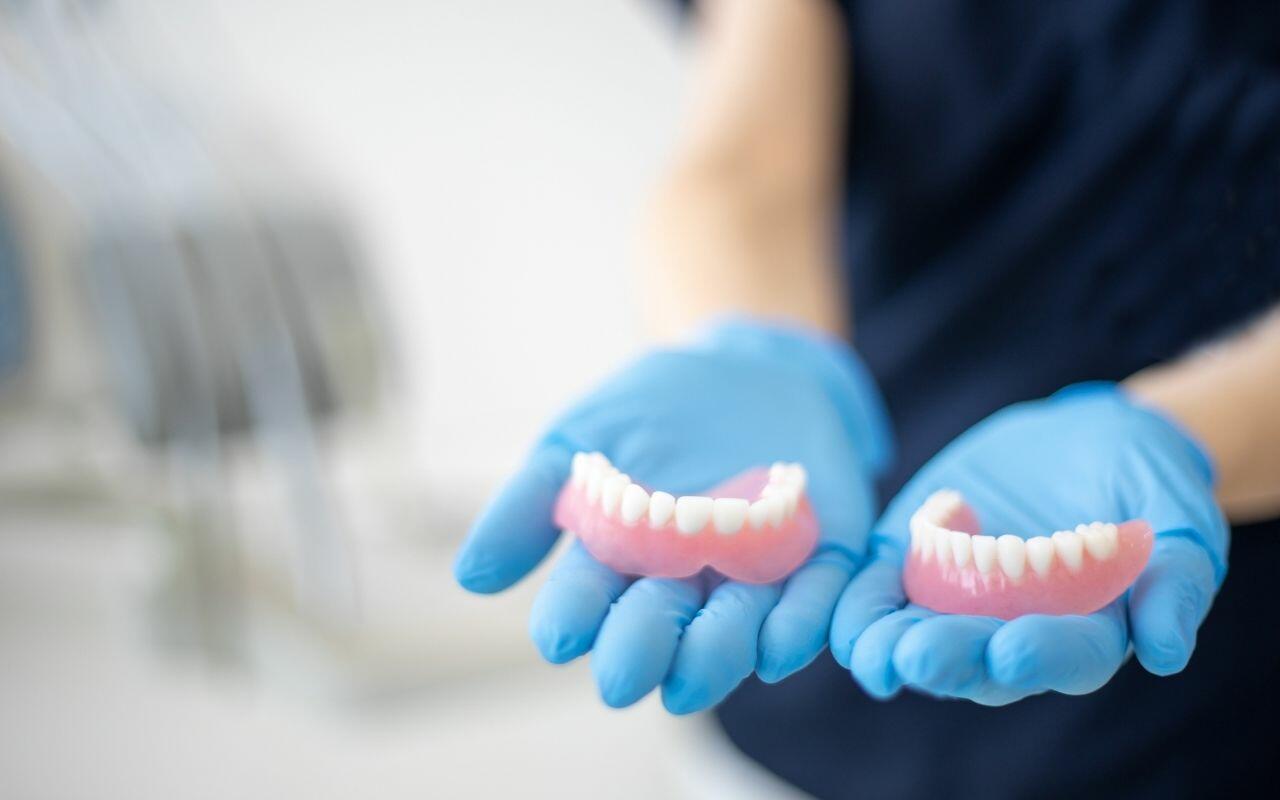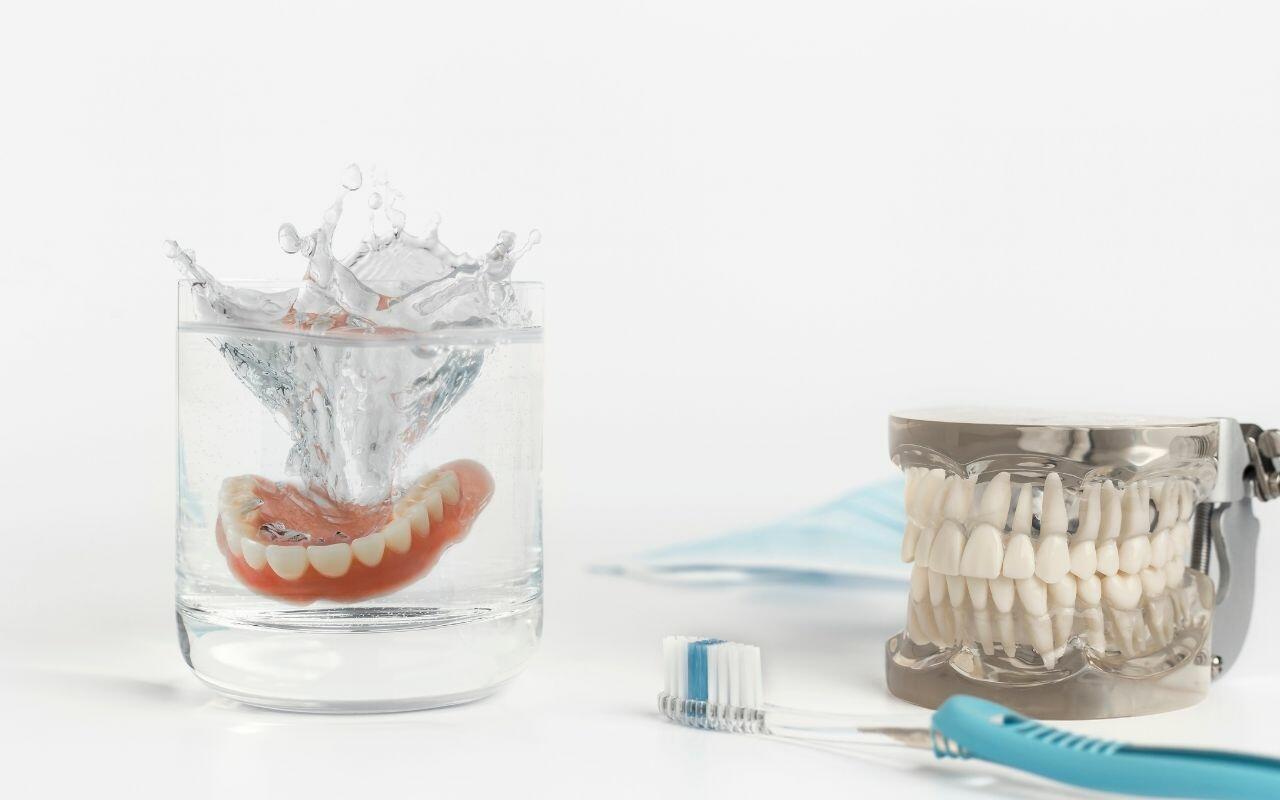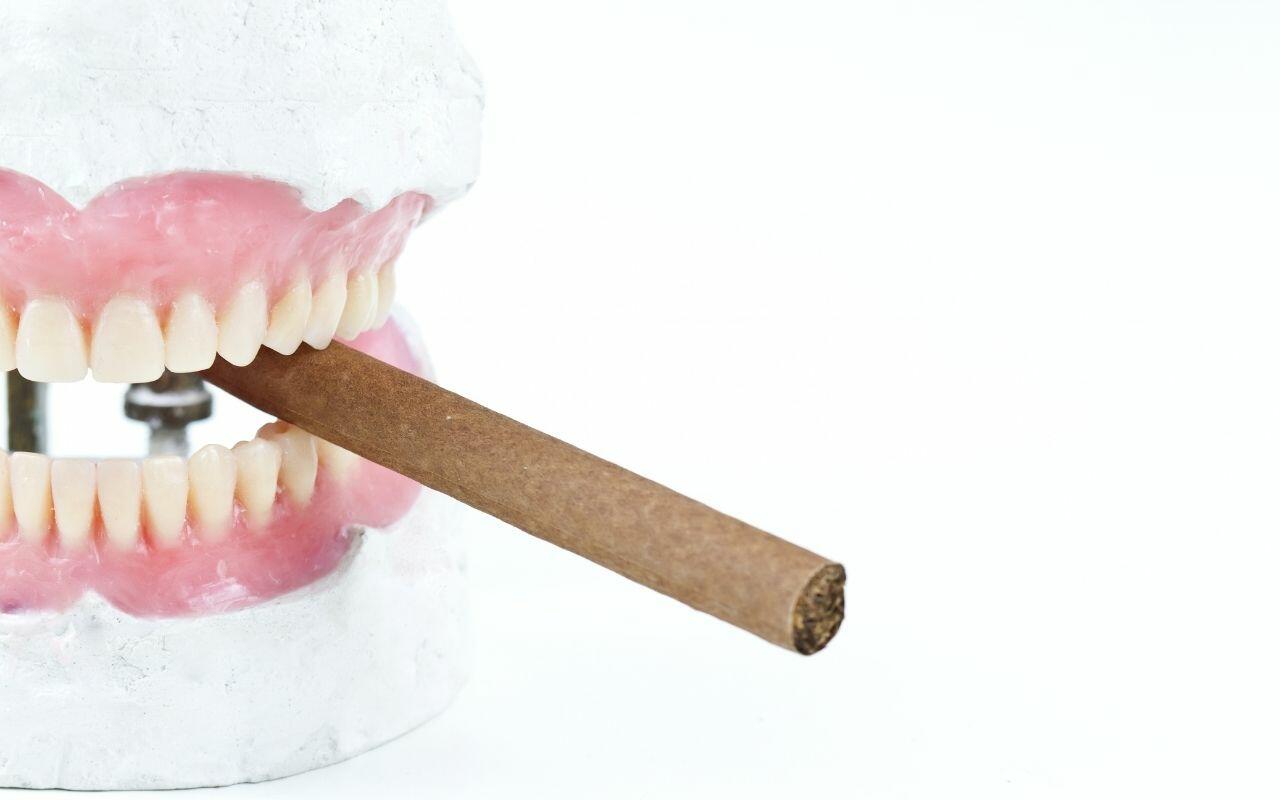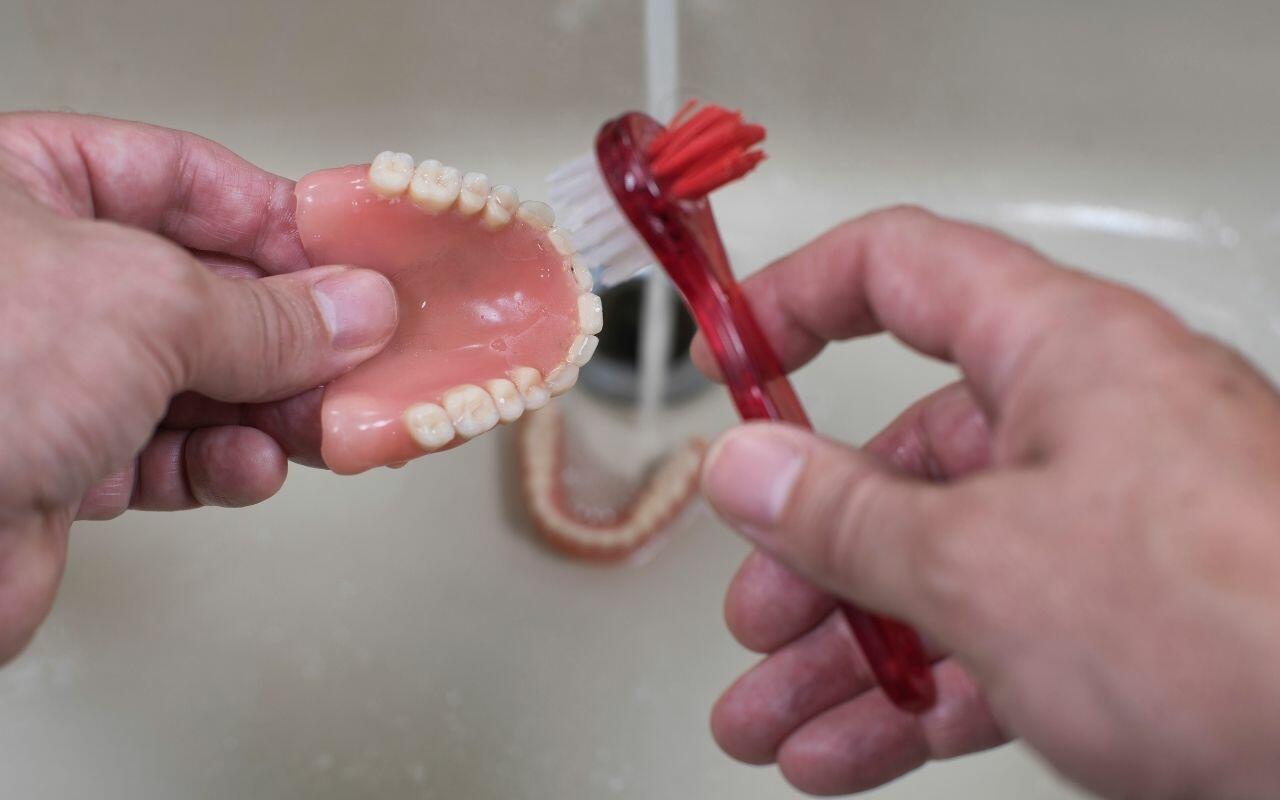If you’ve ever wondered, ‘Can stains be removed from dentures?‘… the simple answer is yes, stains can be removed from dentures. However, it also depends on what caused the stain and how long it’s been allowed to set in. The trick is that your dentures need to be cleaned just like your natural teeth. They are prone to the same staining and discolouration from common issues such as drinking coffee, red wine and smoking, as your natural teeth are.
The longer you carry on without addressing stains, the harder the stains will be to remove. Here we explain everything you need to know about denture care and how to remove denture stains to keep them pearly white. So…
Can Stains Be Removed From Dentures?

Of course, the best way to remove denture stains is to avoid getting them in the first place. Proper oral care is a must for denture wearers as, although you don’t have to worry about cavities, your oral health still depends on a robust daily oral health routine. Follow these steps to reduce the risk for denture stains:
Brush your dentures daily: Daily brushing keeps dentures clean and removes plaque and bacteria. Although you don’t have to worry about tooth decay, you do have to worry about stains caused by plaque. Brushing your dentures calls for a soft bristle toothbrush and a nonabrasive denture cleaner. Regular toothpaste is too abrasive which can damage your dentures. When you brush your dentures, place a towel in the sink while you work, to avoid damage if you drop them. Then apply the nonabrasive denture cleaner and gently brush the dentures to remove debris, bacteria, and plaque. Do not bend them or you can damage the plastic.
Soak your dentures each night: Once you’re finished brushing your dentures, soak them in a glass of clean, cool water overnight. Leaving your dentures in your mouth creates too much saliva and bacteria. Your dentures also rub against your gums, causing sores and discomfort. Bacteria can lead to infections, and even though you don’t have teeth, you can still get gum disease. Constant rubbing also increases the risk for jawbone loss, changes to your appearance, and speeds up wear and tear on your dentures. The wear and tear damages your dentures and can also alter the fit, leading to more rubbing and bone loss.
Rinse after eating: After you eat, give your mouth and dentures a good rinse to reduce bacteria and remove debris. Rinsing your mouth ensures food doesn’t get caught between your gums and dentures. This causes sores and irritation, as well as gum disease. Always rinse with cold water to avoid warping.
Care for your teeth: If you only have partial dentures, make sure you care for your remaining natural teeth and gums. You don’t want to risk further tooth loss. Brush and floss your teeth twice a day and remove food that gets trapped between your teeth right away. Also, be sure to clean thoroughly between your partial and natural teeth to avoid gum disease. Flossing is very important for partial denture wearers as it stimulates blood flow and reduces the risk of gum irritation.
Book regular dental check-ups: You might think you no longer need to worry about those regular dental check-ups, but they are just as important as ever. You want to ensure your dentures maintain a comfortable fit, that your gums are healthy, and that there aren’t any signs of oral cancer.
These tips will keep your gums and remaining teeth healthy, reduce the risk for stains, and help ensure your dentures have a comfortable fit.
How To Remove Denture Stains

Dentures can develop a brown or yellow staining over time. How you remove the stain often depends on what caused the stain in the first place. Here are tips to remove the two most common denture stains so they maintain an appealing, natural tone:
- Coffee stains: Coffee stains occur over time. Therefore removing and rinsing your dentures after drinking coffee helps reduce exposure to the deep pigments. A thorough rinse under cool water will remove coffee film and pigments, so you are less likely to see your dentures stain. If you are a coffee addict, be sure to soak your dentures in a denture stain remover, but not overnight. Although most products say you can use them overnight, it is best to ask your dentist to recommend safe use to avoid damage.
- Tobacco stains: The best solution for tobacco stains is to quit smoking. It is better for your overall health and a necessary step to avoid very stubborn brown stains. The more you smoke, the harder it is to remove tobacco stains. Stubborn stains might need something a little stronger to help remove the discolouration, such as a soak in vinegar and baking soda. The bubbling reaction helps scrub away stains gently to avoid damage. You can also find denture bleach products. Be sure you are using denture bleach as household bleach is poisonous.
Although these stain-removing tips can provide good results, taking preventative steps is always best.
How To Avoid Denture Stains

In hand with your daily oral care routine you can also use these tips:
- Quit or reduce smoking
- Avoid dark beverages such as coffee, tea, or wine
- Add cream or milk to your coffee and tea to dilute the dark pigments
- Use a straw when drinking dark-coloured beverages
- Don’t allow wine to linger in your mouth
These are a few steps you can use to prevent denture stains.
Cleaning Methods To Avoid

There are also some cleaning methods you should avoid when trying to remove denture stains, including:
Regular toothpaste: As mentioned above, regular kinds of toothpaste are too abrasive for dentures.
Teeth whitening products: Teeth whitening products including teeth whitening toothpaste contain chemicals that will not only be ineffective in removing the stains but also cause damage due to the abrasive ingredients.
Medium- or hard-bristled toothbrushes: While you might think you are gaining more cleaning power with a harder bristle, you will dull the surface of your dentures and actually make your dentures more prone to staining.
Hot water: Hot, and especially boiling, water warps the plastic material used for your dentures. This leads to poor fit and the need for costly repairs. Always use cold water when cleaning your dentures.
If you find you can’t remove your denture stains, speak to your dentist. They can recommend the right products and techniques to help remove surface stains effectively. Call today to schedule an appointment at 905-775-5307 or click here to request an appointment.
